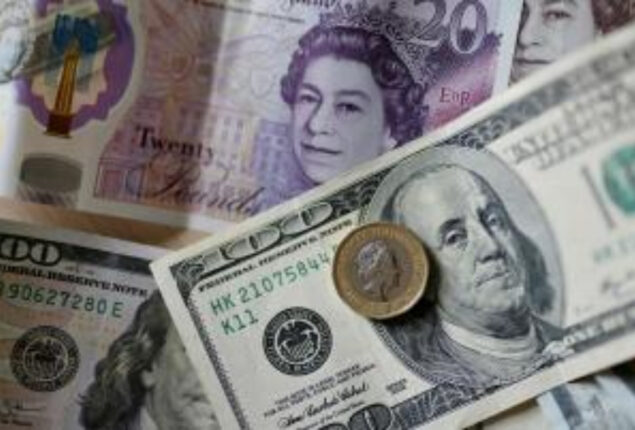Ukraine conflict: protests against the new draught in Dagestan, Russia
In the most recent demonstrations against Moscow's call-up of 300,000 military reservists,...

The pound has fallen to a record low
As a result of the market’s response to the UK’s largest tax cuts in 50 years, the pound has reached a record low against the dollar.
Sterling dropped almost to $1.03 in early Asian trade before reclaiming some ground to reach roughly $1.07 on Monday morning, UK time.
In anticipation of a rise in borrowing, Chancellor Kwasi Kwarteng has promised additional tax cuts on top of the £45 billion plan he announced on Friday.
The rise of the dollar has put pressure on the pound as well.
Amid investor worries about the possibility of a recession as winter approaches without any sign of an end to the energy crisis or the war in Ukraine, the euro also hit a new 20-year low against the dollar.
If the pound stays this low versus the dollar, imports of goods like oil and gas that are priced in dollars will be more expensive.
Other US products may also be significantly more expensive, and British tourists visiting the US may discover that their vacation money does not stretch as far as it did before to the fall of the pound.
Additionally, there are worries that tax cuts and a rise in government borrowing could fuel rising inflation and drive the Bank of England to increase interest rates even further. Millions of homeowners would have higher monthly mortgage payments as a result.
The Bank increased interest rates last week by.25% to 2.25% in an effort to lower inflation, which is at a 40-year high of 9.9%. The rate rise, which brought rates to their highest level in 14 years, was the eighth in a row.
Some analysts have hypothesized that the Bank may conduct an emergency meeting this week to raise interest rates once more in the future.
Interest rates could hit 5.5% by the spring of next year, according to market observers.
Former Bank of England deputy governor Sir John Gieve told the BBC regarding the possibility that the bank could increase interest rates before its scheduled meeting in November, “I’m sure they very much don’t want to do that… because that is a sign of pressure.
“The procedure we put in place when we made the Bank independent is part of a regular series of meetings at predictable times, so emergency meetings are avoided if at all possible and I am confident they will attempt to avoid it,” the official said.
The cost of borrowing money from the UK government increased once further on Monday, reaching its highest level since the financial crisis of 2008.
After unveiling a significant tax shake-up on Friday as part of a “mini-budget” to spur economic growth, Mr. Kwarteng warned at the weekend that “there’s more to come” in terms of tax reductions.
The measures, which he welcomed as ushering in a “new era” for the economy, call for the reduction of income tax and stamp duty on house sales as well as the cancellation of anticipated increases in company taxes. He declared that the 45% top income tax rate for those making over £150,000 per year will be eliminated by the government.
The government announced £45 billion in tax savings and said it would invest £60 billion in its program to subsidies growing energy costs for homes and businesses during the first six months. However, since the program to support homes will extend for two years, the cost is anticipated to increase.
Catch all the Business News, International News, Breaking News Event and Latest News Updates on The BOL News
Download The BOL News App to get the Daily News Update & Follow us on Google News.